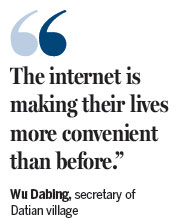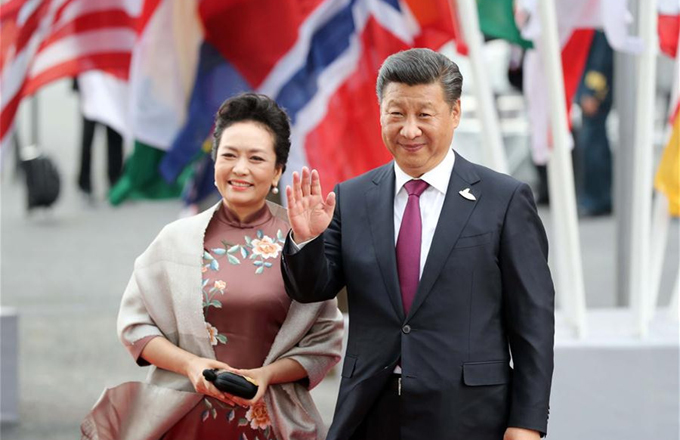Cutting charges is just what startups need to get going
China's major telecom carriers are cutting charges in a move to help individual customers and startups benefit from super-fast internet access.
The big three of China Mobile Communications Corp, China United Network Communications Group Co Ltd and China Telecommunications Corp are promoting competitive packages for broadband internet, mobile data traffic and roaming services.
"Because of the reduction of the network fee, we are facing less pressure in launching our startup project," said Michale Wang, an administrative director of an undisclosed startup company in Shanghai.
"At this stage, every coin counts and China Mobile helps us save money," he added. "Also, the internet speed is very fast."
The telecom giant spent more than 572 billion yuan ($84.4 billion) on network construction from 2015 to 2017, increasing capacity and speed levels.
During the past two years, broadband costs for customers have dropped to 32.7 yuan per month from 52 yuan.
China Mobile is not alone in wheeling out improved services.
Rival China Telecom has upgraded its rural networks, and elderly villagers in Datian, Hunan Province can now book doctor's appointments and arrange payments online through their social security cards.
"They can use their social security cards at home instead of going miles into town to deal with payments or see doctors," said WuDabing, secretary of Datian village.

"The internet is making their lives more convenient than before," Wu added.
Supported by government policies to promote inclusive telecom services, the industry has increased broadband and internet packages this year.
A report released by the Ministry of Industry and Information Technology showed that all of China's urban areas now have fiber optic broadband, a first for the country.
In March, the big three players promised to scrap domestic roaming charges in the fall.
It is common practice for Chinese telecom companies to collect roaming fees when a subscriber leaves their local service area.
These range from 0.6 yuan to 0.8 yuan per minute depending on individual mobile packages.
"Reducing charges and boosting internet speed, as well as promoting fiber (optic)-to-the-home (FTTH) are of great significance for China under the present circumstances," said He Jia, an engineer at the China Academy of Information and Communications Technology.
"It will not only bring actual profits to companies and people by lowering their costs, but also help them to better adapt to the competitive international market," she added.





















